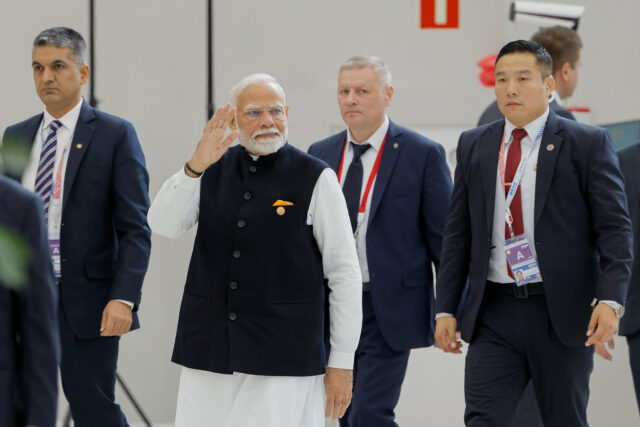
“BRICS should be seen as a non-political economic grouping even though its members will express political views but the focus will be more on BRI, on the use of national currencies in bilateral trade, fintech and so on,” a cross-section of official and non-official sources told Stratnewsglobal.
They were asked their impressions about the recently concluded BRICS summit in Kazan, Russia, how they saw the principal players and of course India.
“China will be a major player in leading BRICS,” the sources said, “and the grouping is dominated by China. In geopolitical terms, members like Iran and some others will be closer to China and even Russia.”
A view is that BRICS should expand as “a Global South forum”, a point also made by Russia’s Ambassador Denis Alipov, at a media briefing on Monday.
“As like-minded countries, we will keep closely coordinating on various international issues on the UN, G20 and WTO agenda to create better conditions for the Global South to get equal access to technological, financial and natural resources,” he said.
It could strike a chord with new members like Uganda and Ethiopia, countries with limited resources. The latter has even emerged from a period of serious internal conflict. But all want to play a role, seeking influence in areas where they have an interest.
They are drawn to BRICS by the prospect of funding for domestic infrastructure and other projects. They also see a future in an order where national currencies can be viable alternatives to the US dollar in bilateral trade.
The Kazan summit saw an important move in that direction with the Cross-Border Payments Initiative to facilitate interaction between central banks and the use of local currencies in trade.
It was also resolved in Kazan to strengthen the New Development Bank with the addition of an investment platform.
As a senior diplomat noted, “people all over the world are aspirational, aspiring for something better even bigger. Asean will see BRICS as another platform for more voices to be heard. So will others.”
India should play a constructive role in this churn, was one view, and should make its presence felt in areas where its expertise is acknowledged worldwide. This could be Digital Public Infrastructure, Fintech, IT and so on, he said.
It has strengths in pharma, biotech and space. It has embarked on an ambitious path to transition its energy consumption from fossil fuels to renewables like solar and wind, and going forward green hydrogen.
India is also major player in the International North South Transport Corridor that runs through Iran, not to mention its role in Chabahar port. It underscores India’s roots in the region, the diplomat emphasised.
A strong presence within the inner councils of BRICS may correct a perception in some quarters that India is hesitant about the group. This view may have stemmed from India’s initial opposition to BRICS expansion although Delhi was able to recover ground subsequently.
“There will be pressure from the US but that’s something we have to take,” he said dismissing loud calls from within BRICS demanding “de-dollarization”.
In his view this is impractical, the dollar is too deep rooted in international trade to be easily discarded. But more and more BRICS members are turning to national currencies in bilateral trade arrangements, such as what China and Russia are doing.
Thirty eight years in journalism, widely travelled, history buff with a preference for Old Monk Rum. Current interest/focus spans China, Technology and Trade. Recent reads: Steven Colls Directorate S and Alexander Frater's Chasing the Monsoon. Netflix/Prime video junkie. Loves animal videos on Facebook. Reluctant tweeter.




